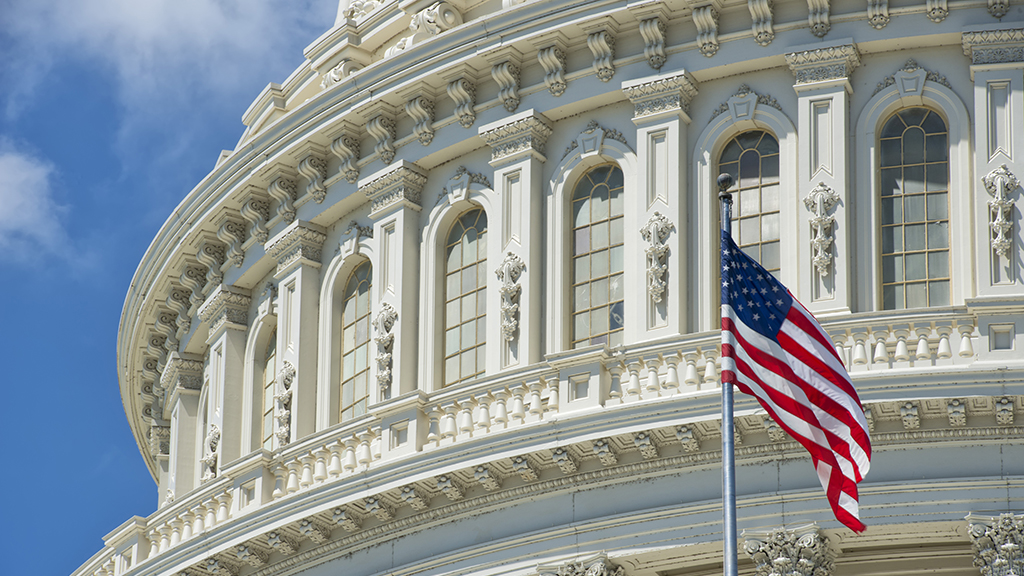Legislative Update
House Passes America Competes Act
By Jodi Peterson
Posted on 2022-02-14

Disclaimer: The views expressed in this blog post are those of the author(s) and do not necessarily reflect the official position of the National Science Teaching Association (NSTA).
Strengthening STEM Ecosystems Act Introduced in the Senate
On Feb. 10, U.S. Senators Mark Kelly (D-AZ) and Jerry Moran (R-KS) introduced the Strengthening STEM Ecosystems Act. The bill would authorize $25 million to establish a three-year, competitive grant program within the National Science Foundation that would provide funding to STEM ecosystems and their partners to better connect communities, share knowledge, and create pathways for students to enter STEM careers.
Read more about the bill and the text of the legislation here.
House Passes COMPETES Act
Last week the U.S. House passed the America Creating Opportunities for Manufacturing Pre-Eminence in Technology and Economic Strength Act, widely known as the America COMPETES Act. The bill will go on to a conference committee that will negotiate compromise legislation with the Senate bill, U.S. Innovation and Competition Act, which passed last June.
Overall the House legislation would:
- Provide more than $50 billion over five years for semiconductor research and development.
- Authorize $45 billion over six years for a new Supply Chains for Critical Manufacturing Industries Fund.
- Reauthorize programs at the National Science Foundation and create a new Science and Engineering Solutions Directorate.
- Authorize funding for research and development programs at the Energy Department and for international efforts to address climate change.
- Expand strategic stockpiles of medical supplies.
- Impose additional sanctions for human rights violations against Uyghurs in China’s Xinjiang region and allow Hong Kong residents to apply for temporary protected status in the U.S.
- Extend trade preference programs, authorize two more rounds of a miscellaneous tariff bill, and reauthorize Trade Adjustment Assistance programs.
- Modify premerger notification fees paid to the Federal Trade Commission and index the amounts for inflation.
- Create new visa categories for startup owners and workers.
The two bills are very similar, including language about semiconductor sector subsidies and proposals to expand the National Science Foundation, but the Senate bill does not include proposals to expand STEM immigration pathways.
The National Science Foundation would be authorized to receive $12.5 billion in fiscal 2022.
As mentioned above, a new Science and Engineering Solutions Directorate within NSF would advance research and development solutions that address societal and national challenges, such as climate change and environmental sustainability, domestic job creation in critical technologies, cybersecurity, STEM education and workforce, and social and economic inequality.
In regards to STEM education, legislative language calls for NSF to create a competitive grant program for higher education institutions and nonprofit groups to establish at least three R&D centers to implement evidence-based STEM practices, curricula, and technologies for prekindergarten through 12th grade. The agency also would have to establish a similar program for research on programming that engages Pre-K through 8th grade students.
The bill also calls on NSF to conduct a study on quantum education gaps in K-12 education. It authorizes new competitive grant programs operated by the U.S. Department of Education to support equitable access to postsecondary STEM pathways and access to computer science education. It authorizes the Department of Energy to support programs that foster collaboration between K-12 students, university students, early-career researchers, faculty, and national laboratories.
It supports National Academies studies to identify research priorities in PreK-12 STEM education and on barriers to the widespread implementation of STEM education innovations and authorizes programs to fund multidisciplinary research and translation centers to scale STEM education innovations.
Finally, Sense of Congress language on NASA’s capacity to engage students in STEM calls for NASA to increase K-12 involvement in their projects, enhance higher education, and support underrepresented communities in STEM.
For more information, read the AIP brief here.
OSTP Policy Director Eric Lander Resigns
White House Office of Science and Technology Policy Director and Presidential Science Advisor Eric Lander resigned last week after a number of media reports surfaced about complaints of mistreatment from staff members. Read more from AIP and the Associated Press.
Stay tuned, and watch for more updates in future issues of NSTA Reports.
Jodi Peterson is the Assistant Executive Director of Communications, Legislative & Public Affairs for the National Science Teaching Association (NSTA) and Chair of the STEM Education Coalition. Reach her via e-mail at jpeterson@nsta.org or via Twitter at @stemedadvocate.


